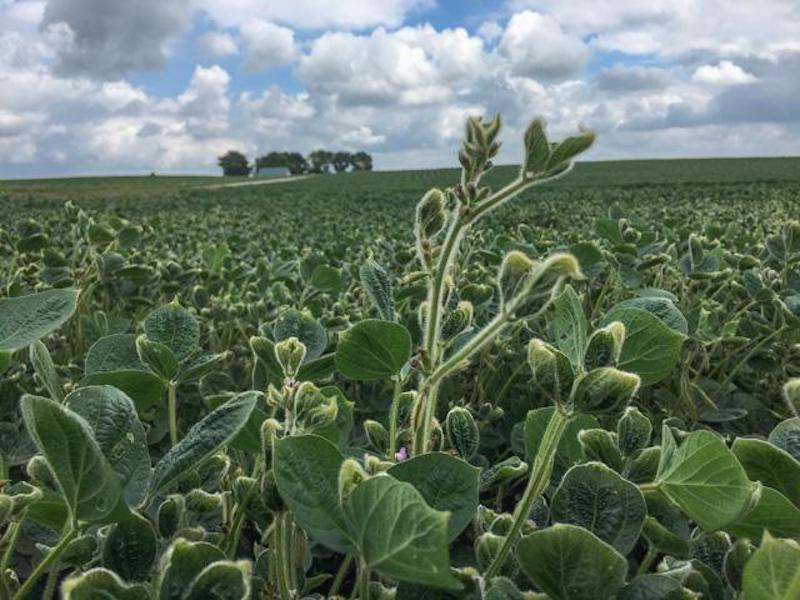
29 Oct Monsanto Bid To Uproot Farmers’ Class Claims Rejected
Published by Law 360
October 23, 2018, 6:19 PM EDT
Monsanto must face several proposed class actions by farmers who accuse the agriculture giant of producing an herbicide that drifted across farmlands, damaging crops and ultimately forcing growers to buy seeds that resist the weedkiller, a Missouri federal judge ruled Tuesday.
The agrochemical company sought in early October to dismiss the class-related claims in seven stayed cases that are part of multidistrict litigation, saying they would create a tangle of practical problems for the court to move the entire MDL along efficiently. The class actions are stayed while the court hears a master complaint alleging crop damage by Monsanto.
But U.S. District Judge Stephen N. Limbaugh Jr. said Tuesday the farmers’ class action claims can proceed later, once the stays are lifted, because they deal with many of the same legal issues that will be tackled in the opening arguments over the herbicide’s impact on neighboring farms.
“As plaintiffs point out, the court’s ruling on class certification for the master crop damage complaint will deal with common issues relevant to the stayed cases,” the judge said, refusing to strike any of the proposed class actions.
At the heart of the litigation is the herbicide dicamba, which the growers suing Monsanto blame for destroying soybean and cotton crops. On top of hurting their crop yields and restricting supply, the company profited by then forcing them to buy crop strains that are tolerant to the weedkiller, the farmers allege in various complaints.
The Judicial Panel on Multidistrict Litigation in February decided to centralize a series of suits by farmers over alleged impacts of dicamba, saying the claims share factual questions about how the herbicide was developed, tested and marketed.
As the MDL has proceeded in Missouri federal court, Monsanto has pressed to get rid of the class action claims, saying the farmers cannot bring those claims because they are not direct purchasers and claiming the allegations would not make economic sense for Monsanto.
The farmers fought back in mid-October, telling the court that Monsanto was twisting the facts and improperly using the dismissal motion stage to argue the factual basis of the dispute.
In Tuesday’s ruling to let the class actions stand for now, Judge Limbaugh said the same issues that come up in the crop-damage case will affect how the rest of the farmers’ claims are adjudicated.
“The court’s rulings on the pending motions to dismiss will likewise be relevant to the stayed cases,” he said. “Thus, Monsanto’s arguments regarding the efficiency of the MDL litigation are unfounded.”
The judge likewise refused to strike class action claims in one of the stayed cases against E. I. du Pont de Nemours and Co. and Pioneer Hi-Bred International Inc.
A representative for Monsanto told Law360 that Tuesday’s order “applied only to duplicative and overlapping class claims that remain pending in complaints the district court has ordered indefinitely stayed.”
“Monsanto asked the district court to strike the duplicative and overlapping class claims from the stayed complaints because they are not being actively pursued,” the representative said. “The court denied Monsanto’s motion because it found that it lacked authority to strike the claims at this juncture. The court did not make any ruling relating to the merits of any of the pending class claims.”
Counsel for the farmers declined to comment Tuesday.
The farmers are represented by Don M. Downing of Gray Ritter & Graham PC, James Bilsborrow of Weitz & Luxenberg PC, Paul Byrd of Paul Byrd Law Firm PLLC, Paul A. Lesko of Peiffer Wolf Carr & Kane APLC, Richard M. Paul III of Paul LLP, Scott E. Poynter of Poynter Law Group, Beverly T. Randles of Randles & Splittgerber, Rene F. Rocha III of Morgan & Morgan, and Charles S. Zimmerman of Zimmerman Reed LLP.
Monsanto is represented by A. Elizabeth Blackwell of Bryan Cave Leighton Paisner LLP, Christopher M. Hohn, Jan Paul Miller, Daniel C. Cox and Jeffrey A. Masson of Thompson Coburn LLP, and John J. Rosenthal of Winston & Strawn LLP.
DuPont is represented by Richard B. Walsh Jr., C. David Goerisch and R. Bradley Ziegler of Lewis Rice LLC, and John M. Johnson, Jeffrey P. Doss and Amie A. Vague of Lightfoot Franklin & White LLC.
The case is In re: Dicamba Herbicides Litigation, case number 1:18-md-02820, in the U.S. District Court for the Eastern District of Missouri.
–Additional reporting by Michael Phillis and Carolina Bolado. Editing by Breda Lund.
FREE Consultation | Farmers & Growers With Crop Or Plant Damage
Dicamba Drift Lawyers at Peiffer Wolf Carr & Kane and Arkansas attorneys Michael Smith and Paul James are fighting on behalf of farmers and landowners to seek maximum compensation for the damages suffered due to Dicamba. If you suspect that your crops or plants have been damaged by dicamba, contact Peiffer Wolf Carr & Kane by filling out a Contact Form or by calling 314-833-4826 for a FREE Consultation.
Also, you can reach Paul Lesko directly at 314-833-4826 or at plesko@prwlegal.com.
About Peiffer Wolf Carr & Kane, APLC
Peiffer Wolf Carr & Kane is a nationwide litigation law firm that represents individuals and entities that have been the victims of negligence, fraud or the misconduct of powerful interests. We are smart, experienced, and dedicated professionals who work tirelessly for our clients and take pride in the pursuit of justice on their behalf. Too often the powerful interests in our society run over the rights of ordinary people. We do our best to restore that balance.



